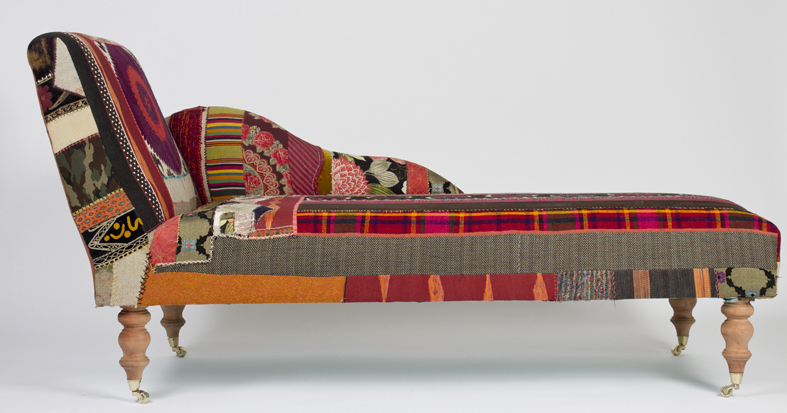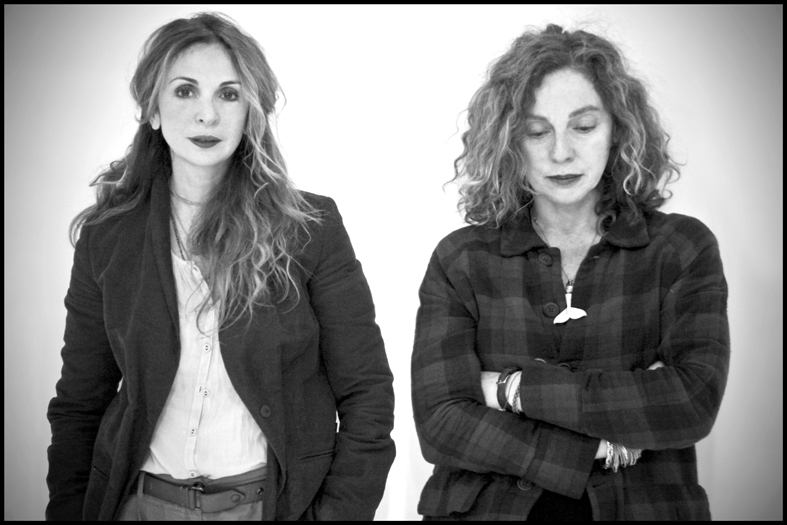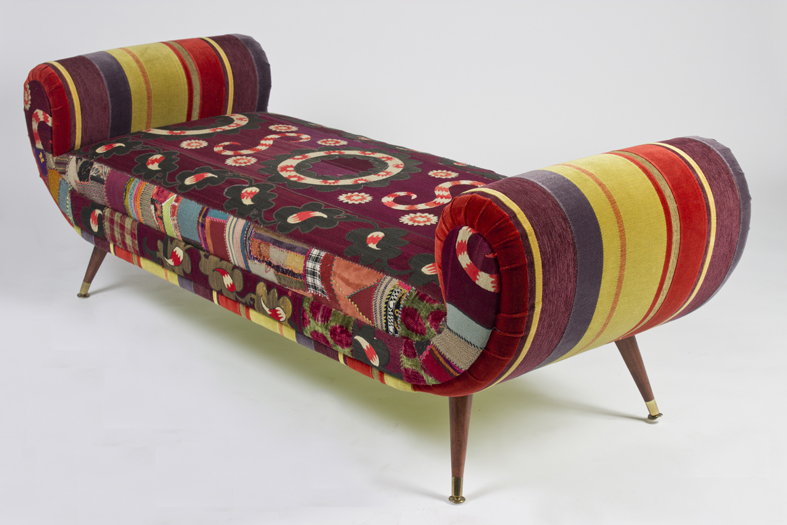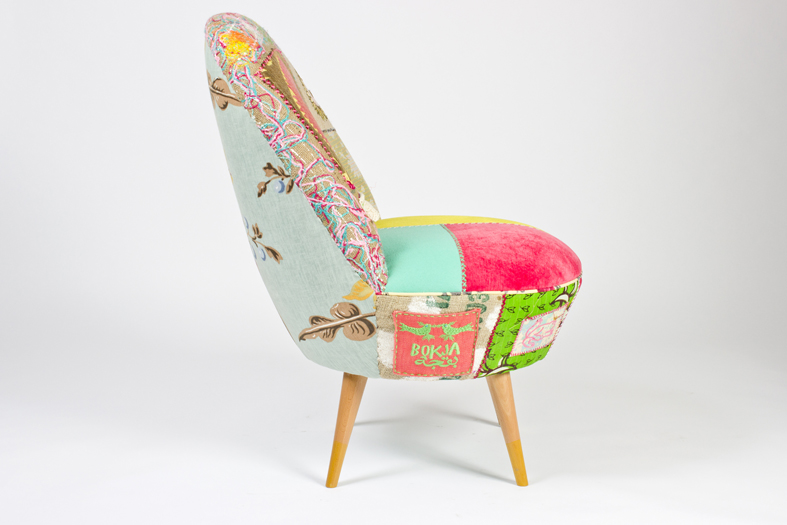Daybed. © Bokja Design
Can you tell us briefly about the process of your progress?
Bokja was officially born in 2000, after a serendipitous meeting and project got us together. Our mutual passion for antiques, textiles, and handicraft took us on a journey to the countries of the Silk Road and Asia, where we amassed an archive and knowledge of traditional crafts and fabrics from the region. As Bokja evolved, we saw its aesthetic become more and more distinct, incorporating fabrics that are contemporary as well as those made in our atelier, creating a whole new textile language that we continue to develop to this day.
Hoda Baroudi and Maria Hibri. © Bokja
How did you face the challenges inherent to the manufacture of furniture, because behind the creative process, there is a technical aspect that requires some know-how?
It was an interesting transition moving into a full process of creation, where we created a piece from A to Z. Our experience in working with furniture before, as well as an inherent instinct for design carried us through this period. It is still a learning process, and we are continuously striving to improve our products and integrate new technologies to reach the peak of craftsmanship. Luckily we also have a great team around us with which we can share new ideas and feedback.
Your furniture encounters international success, you received many prizes, what is the part of the Lebanese market in your turnover? And to which countries do you export?
It has always been a vital part of the business to give back to the city that has shaped us and the design community that has supported us, this is why we chose to base our company here and create every single product from start to finish in Beirut. Despite the economic and political instability here, it has never been an obstacle in being recognized abroad, and we are thankful to see how Bokja has touched the hearts of people in countries as far as Japan, the United States and Africa.
Opium. © Bokja Design
Who are Bokja clients?
We find that Bokja appeals to a wide variety of people, from those who appreciate it for the story and handicraft, to those who appreciate the aesthetic of a piece. A work from Bokja is a charged one that fosters an emotional connection with its audience, and usually someone who purchases a piece is ready to start a life-long affair with the brand.
Eye Candy. © Bokja Design
With their vintage look that adds a colored touch to furniture, we have the impression that your pieces through the fabrics used bring the past into the present?
Our mission is to elevate the mundane and to find the beauty and appreciation in the imperfect. Juxtaposing older handicraft techniques and aesthetics with contemporary technology and imagery allows audiences to discover something from the past in a whole new way that fits into their modern lifestyles. Interview conducted by Rita Saadé









